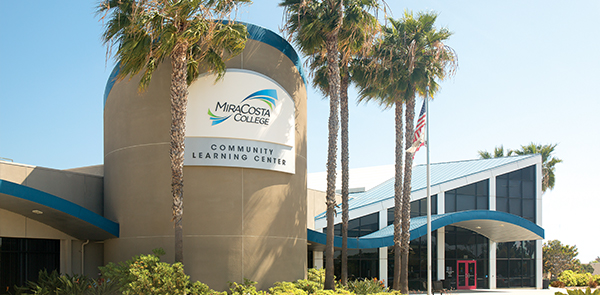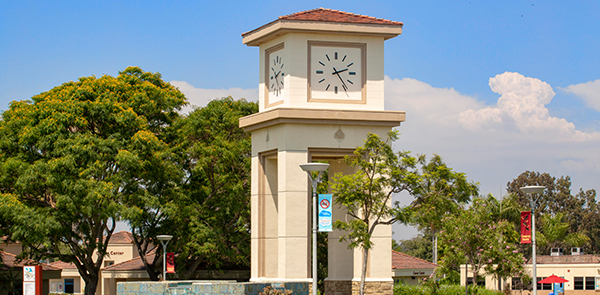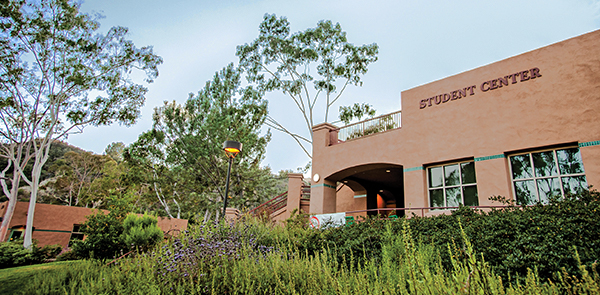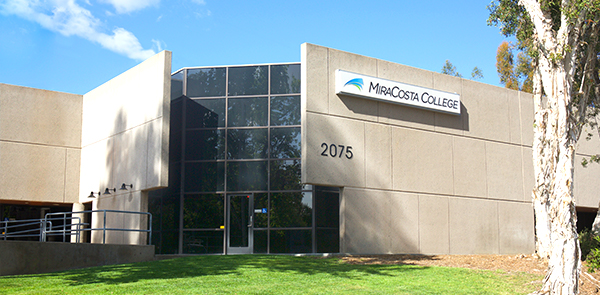 Search
MiraCosta
Search
MiraCosta
Nutrition
Nutrition
Associate Degree
Associate in Science Degree
Nutrition and Dietetics for Transfer
The Associate in Science in Nutrition and Dietetics for Transfer (AS-T) degree is intended to meet the lower-division requirements for nutrition and dietetics majors, an emphasis or option within a nutrition or dietetics major, or a major considered similar to a nutrition and dietetics major at a participating California State University (CSU) campus. The degree prepares students for a career in nutrition and dietetics and to function in a variety of nutrition, public health, and clinical settings.
Following transfer to a participating CSU campus, students will be required to complete no more than 60 units to obtain a bachelor’s degree; however, some CSU campuses accepting this degree may require additional lower-division major preparation. This degree may not be appropriate preparation for students transferring to a CSU campus not accepting this degree or to a university or college that is not part of the CSU system. Students should consult with a MiraCosta counselor for further information regarding the most efficient pathway to transfer as a nutrition or dietetics major and to determine which CSU campuses are participating in this program.
Graduation Requirements
- Complete a minimum of 60 CSU-transferable semester units.
- Complete all courses in the major with a “C” or "P" or better.
- Complete the Cal-GETC general education pattern.
- Obtain a minimum CSU-transferable grade point average of 2.0.
- Complete a minimum of 12 semester units in residence at MiraCosta College.
Program Student Learning Outcome
Upon successful completion of this program, students will be able to relate and apply the key theories and concepts of nutrition to advanced academic study.
Course Requirements
| Required Core Courses: | ||
| BIO 230 | Introduction to Microbiology * | 5 |
| CHEM 150 | General Chemistry I: For Science Majors * | 5 |
| NUTR 100 | Nutrition Today | 3 |
| PSYC C1000 | Introduction to Psychology * | 3 |
| or PSYC C1000H | Introduction to Psychology (Honors) | |
| List A: Select two courses. | 8-10 | |
| Biostatistics * | ||
or BUS 204 | Business Statistics | |
or PSYC 104 | Statistics for Behavioral Science | |
or PSYC 104H | Statistics for Behavioral Science (Honors) | |
or SOC 125 | Introduction to Statistics in Sociology | |
or STAT C1000 | Introduction to Statistics | |
or STAT C1000E | Introduction to Statistics (Embedded Support) | |
or STAT C1000H | Introduction to Statistics (Honors) | |
| General Chemistry II: For Science Majors * | ||
| List B (choose one course): | 3 | |
| Cultural Aspects of Foods and Nutrition * | ||
| Principles of Food Science with Lab | ||
| Total Units | 27-29 | |
- *
Course satisfies a general education requirement on the Cal-GETC pattern. To ensure this degree is completed with no more than 60 units, students should select courses that will also satisfy a general education requirement. Note: All of the statistics and honors courses listed are also general education courses.
NOTE: Students are strongly advised to select courses that meet lower-division major preparation requirements at their transfer university and to complete the History, Constitution, and American Ideals requirement prior to transfer.
Certificate
Certificate of Proficiency
Fitness Nutrition Specialist
This certificate provides the knowledge, skills, and abilities to successfully work with clients and athletes seeking basic nutritional guidance and to fight the battle against global obesity. It is designed for students currently working on or holding the Personal Fitness Trainer Certificate of Achievement. Upon completion of the certificate program, students may consider sitting for the National Academy of Sports Medicine (NASM) Fitness Nutrition Specialist exam, the American Council on Exercise (ACE) Lifestyle & Weight Management Coach exam, and/or the International Fitness Professionals Association (IFPA) Sports Nutrition Specialist exam.
Program Student Learning Outcome
Upon completion of this program, students will be able to counsel healthy clients on basic nutritional guidelines and on weight loss.
Course Requirements
| Required courses: | ||
| NUTR 100 | Nutrition Today | 3 |
| KINE 204 | Techniques and Analysis of Fitness and Weight Training | 3 |
| NUTR 105 | Human Performance and Sports Nutrition | 3 |
| HEAL 205 | Integrative Health and Wellness | 3 |
| or NUTR 108 | Cultural Aspects of Foods and Nutrition | |
| Total Units | 12 | |
How to Read Course Descriptions
For more detailed information about a course, such as its content, objectives, and fulfillment of a degree, certificate, or general education requirement, please see the official course outline of record, available on the Courses and Programs webpage.
Courses
NUTR 100: Nutrition Today
Units: 3
Prerequisites: None
Enrollment Limitation: Not open to students with prior credit in NUTR 100H.
Acceptable for Credit: CSU, UC
Lecture 3 hours.
Course Typically Offered: Fall, Spring, and Summer
This course relates scientific concepts of nutrition to the function of nutrients in basic life processes. It emphasizes individual needs; functions and sources of nutrients; current nutrition and health issues; scientific method for analysis and evaluation of nutrition information; dietary guidelines and current nutrition recommendations; digestion, absorption, and metabolism; health, fitness, and disease; nutrition in the life span; and food safety. Students evaluate their food intake using several methods, including a computer diet analysis. UC CREDIT LIMITATION: Credit for NUTR 100, NUTR 105, or NUTR 125. C-ID NUTR-110.
NUTR 105: Human Performance and Sports Nutrition
Units: 3
Prerequisites: None
Acceptable for Credit: CSU, UC
Lecture 3 hours.
Course Typically Offered: Fall, Spring, and Summer
This course introduces nutrition concepts to individuals interested in sports, fitness, and health for various stages of the life cycle. It emphasizes current theories and practices related to nutrition and athletic performance. Topics include macro and micro nutrient intakes, hydration, pre- and post-event food, supplements and ergogenic aids, weight control, and body composition related to performance. The course also examines the cultural, sociological, and psychological influences related to nutrition, fitness, and athletic achievement. UC CREDIT LIMITATION: Credit for NUTR 100, NUTR 105, or NUTR 125.
NUTR 108: Cultural Aspects of Foods and Nutrition
Units: 3
Prerequisites: None
Acceptable for Credit: CSU, UC
Lecture 3 hours.
Course Typically Offered: Fall, Spring
This course examines the regional, ethnic, cultural, religious, historical, and social influences on food patterns, cuisines, and health as well as how food is viewed as an expression of cultural diversity. Students discuss, sample, and assess traditional foods of geographic areas and cultures. They also explore geographic factors in food availability, global food issues, dietary habits, religious influences on food culture, and nutrition problems of various ethnic groups. The course also addresses nutrition consequences of ethnic food choices and sanitation and safety practices.
NUTR 120: Principles of Food Science with Lab
Units: 3
Prerequisites: None
Advisory: ENGL C1000.
Acceptable for Credit: CSU, UC
Lecture 2 hours, laboratory 3 hours.
Course Typically Offered: Fall, Spring
This course focuses on the application of food science principles with emphasis on ingredient function and interaction, food preparation techniques, sensory evaluation standards, food safety and sanitation, and nutrient composition of food. Scientific food principles are studied and then practically applied to laboratory problems. C-ID NUTR-120.
NUTR 125: Nutrition and Aging
Units: 3
Prerequisites: None
Acceptable for Credit: CSU, UC
Lecture 3 hours.
Course Typically Offered: Fall, Spring
This course focuses on the specific nutritional needs and problems in older adults. Topics include nutritional requirements, diet modifications, body system changes, body weight issues, nutrition-related chronic diseases, barriers to proper nutrients, drug/nutrient interactions, and community resources to assist the aging population. Diet and nutritional issues related to aging in a contemporary society are examined from physiological, sociological, psychological, and economic perspectives. UC CREDIT LIMITATION: Credit for NUTR 100, NUTR 105, or NUTR 125.
NUTR 292: Internship Studies
Units: 0.5-14
Prerequisites: None
Corequisite: Complete 54 hours of work per unit, paid or unpaid.
Enrollment Limitation: Instructor, dept chair, and Career Center approval. Fourteen unit maximum in any combination of work experience education and/or internship studies per semester.
Acceptable for Credit: CSU
Course Typically Offered: Fall, Spring, and Summer
This course provides students the opportunity to apply the theories and techniques of their discipline in an internship position in a professional setting under the instruction of a faculty-mentor and site supervisor. It introduces students to aspects of the roles and responsibilities of professionals employed in the field of study. Topics include goal-setting, employability skills development, and examination of the world of work as it relates to the student's career plans. Students must develop new learning objectives and/or work/intern at a new site upon each enrollment.
NUTR 296: Topics in Nutrition
Units: 1-3
Prerequisites: None
Acceptable for Credit: CSU
Lecture 1 hour.
Lecture 2 hours.
Lecture 3 hours.
Course Typically Offered: To be arranged
This course gives students an opportunity to study topics in Nutrition that are not included in regular course offerings. Each Topics course is announced, described, and given its own title and 296 number designation in the class schedule.
NUTR 299: Occupational Work Experience Education
Units: 0.5-14
Prerequisites: None
Corequisite: Complete 54 hours of work per unit, paid or unpaid.
Enrollment Limitation: Career Center approval. Fourteen unit maximum in any combination of work experience education and/or internship studies per semester.
Acceptable for Credit: CSU
Course Typically Offered: Fall, Spring, and Summer
This course is intended for students who are employed in a job directly related to their major or career area of interest. It allows such students the opportunity to apply the theories and skills of their discipline to their position and to undertake new responsibilities and learn new skills at work. Topics include goal-setting, employability skills development, and examination of the world of work as it relates to the student's career plans. Students must develop new learning objectives and/or work/intern at a new site upon each enrollment.
Campus Locations

1831 Mission Avenue
Oceanside, CA 92058
760.795.8710
888.201.8480
View Map

1 Barnard Drive
Oceanside, CA 92056
760.757.2121
888.201.8480
View Map

3333 Manchester Avenue
Cardiff, CA 92007
760.944.4449
888.201.8480
View Map

2075 Las Palmas Drive
Carlsbad, CA 92011
760.795.6820
888.201.8480
View Map
